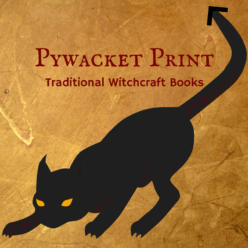When I was a kid I got my poems published in little pamphlets my school made and once I sent my poem off to be in a compilation of American poets advertised in seventeen magazine I think. Wow my poem was accepted! If I wanted a copy of the book it was $40.
Well when I got the book it had thousands of poems in it, I realized the poets and their families were their only customers and it was kinda a low level scam. They accepted near every poem they got including my middle school ode “the cat who”. I learned that real publishers send out more rejections than acceptances and that it is challenging to stand out among all the other authors.
I have kept my eyes peeled and watched carefully the different models of publishing. The world has opened up for writers with the ease of e-book and print on demand, but traditional publishing still has a very important role in the market. So what are the pros and cons of traditional publishing:
Con: Your book might be rejected because the editor doesn’t think it is very good and doubts they could sell it. It can be very discouraging to get rejection letters and harsh criticism of your writing. Big pagan publishers seem to print the same old types of books over again and don’t take risks on new ideas very often. You might have written the next big thing in magic and they won’t accept it because it doesn’t match their formula.
Pro: Your book might be rejected because the editor doesn’t think it is very good and doubts they could sell it. Having an editor who is an expert on what they can sell and what good writing is prevent your from failing publicly because you put out a book that isn’t good enough to sell could save you a big headache. Self publishing in the old days through vanity publishers meant you paid for the printing and that often meant you had boxes of unsold books in your apartment! It is less of a con now with print on demand and ebooks. However editors and publishers can also be too conservative and avoid taking risks on great new books because they say something different. If you go the direction of self publishing field test your book to make sure their is a market for it.
Con: You might have to sign a book deal that locks you into writing more books for that publisher and give rights for your book to them for a certain number of years. If you cannot or do not write other books you are in violation of your contract. If they decide not to sell your books anymore you are stuck in the contract and aren’t making anymore money.
I know a number of pagan and occult authors whose books are no longer printed by their publisher, and they must wait years for the rights to return to them. They have new markets they could sell to and can’t while it is locked up.
Pros: Good book deals will give you money up front to buy the rights to your book and being on the hook to write more for them can be just the motivation you need to get that second book done. If you are a popular seller for them royalties could roll in for a long time.
Con: An editor will make you change parts of your books and will have a lot of control on how it looks printed, what the advertising copy and the cover look like. For an author letting go of complete control of their creation can be so difficult. And your vision could really be compromised by the changes.
Some pagan publishers force restrictive layouts and make massive changes to anything they disagree with. I have read witchcraft books that were obviously butchered to promote the editors version of witchcraft for example pushing the rede, threefold law, and lord and lady onto a book by an atheist witch who stated a witch who cannot harm cannot heal.
Pro: Editors handle cover art and layout to make your book look really good and be eye catching for readers. They want to sell lots of copies to benefit their company so they will request changes that could make your book more popular. They catch your spelling and grammar mistakes and make you look good. I have seen self published pagan books full of mistakes, hideous pencil sketches with eraser lines and grid lines still showing, a number of self published pagan books rely on art that is beyond copyright and looks generic.
Cons: The common royalty split for bigger publishers is only 10% for the author. When you think of all the work you put into writing your book that low of a take seems painful.
If you publish yourself you get all the profits after the costs of printing and advertising. If you already have a great platform like a popular blog or YouTube channel to reach readers you might not need much additional advertising.
A self publisher can use crowdfunding to drum up interest and fund the printing of their book rather than dealing with a publisher.
Pros: the bigger publishers pay for your book to be printed, they have access to bookstore shelves where it will be stocked and otherwise can make your book potentially more profitable than if you sold it yourself. That can turn into more money for you if there is a market for your books out there.
Conclusion:
Ultimately, I have observed that an author may prefer to diversify by self publishing some books and going with various publishers for others. Some of my favorite authors in traditional witchcraft have their own publishing houses and also publish with other companies. As new authors like myself move forward there is a lot to weigh between the two.

